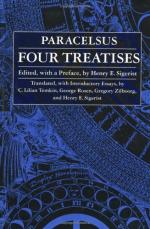|
This section contains 1,851 words (approx. 7 pages at 300 words per page) |

|
Overview
Few issues stirred up debate in the sixteenth and seventeenth centuries as much as the ideas and writings of the medical reformer Theophrastus von Hohenheim, widely known as Paracelsus (c. 1493-1541). Paracelsus attacked the academic medical establishment of his time and offered an alternative way of thinking about pathology, the understanding of the processes through which diseases occur. For Paracelsus, diseases were specific entities or powers that attacked particular parts of the body. Medicine should therefore aim to attack diseases through the use of chemically prepared substances that have a correspondence with the disease. This approach led to a new understanding of therapy and encouraged many people to use chemically based remedies for diseases. Many Paracelsian ideas seem bizarre today, but they are significant because they provided an alternative to a...
|
This section contains 1,851 words (approx. 7 pages at 300 words per page) |

|


